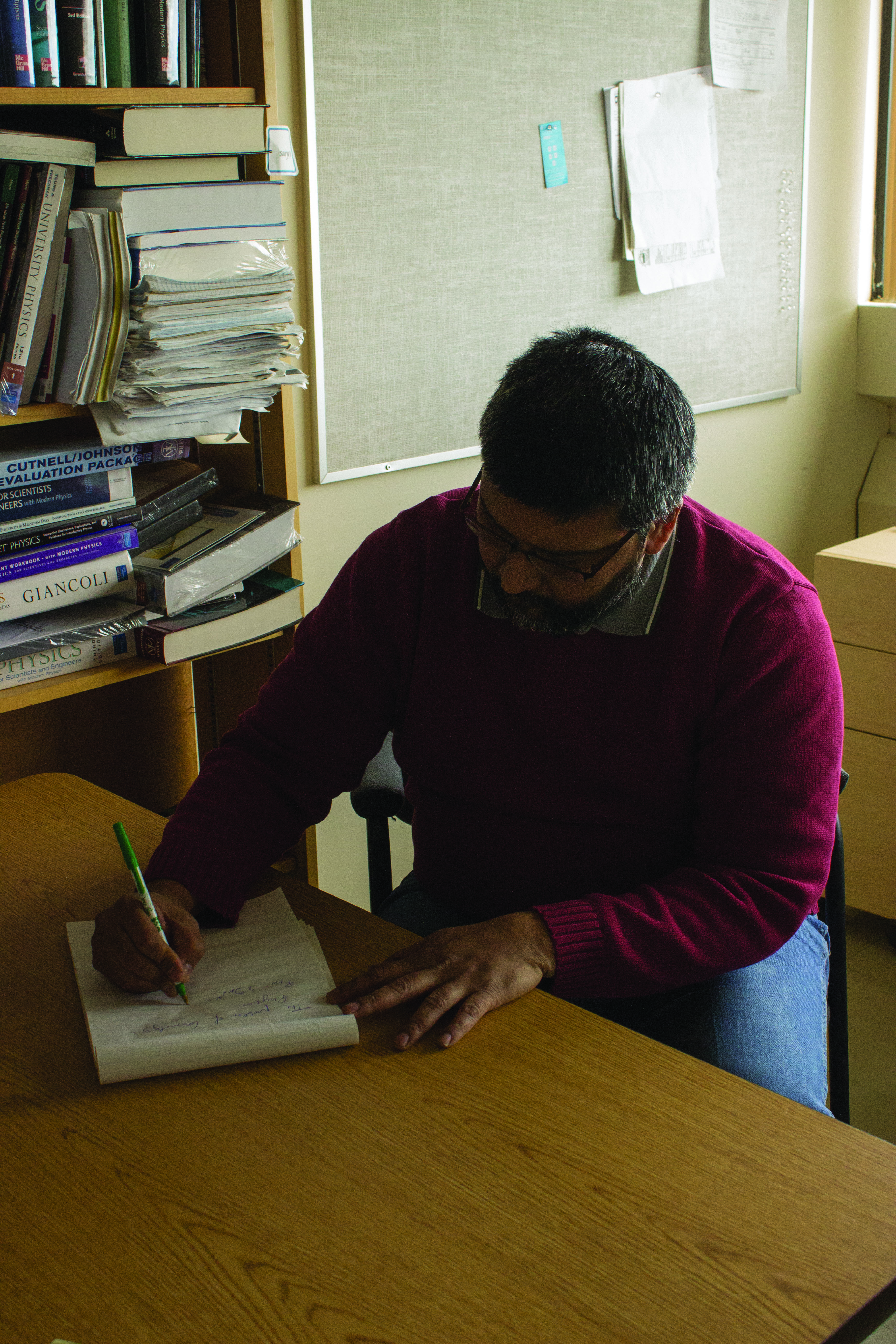Where did the universe come from? Where did we come from? Where will we all go? Always asking and trying to answer the big questions is how one local professor has spent his life. Saurya Das, PhD, is a theoretical physicist, a professor and researcher at the University of Lethbridge. Last year he collaborated on and published a journal with Ahmed Farag Ali titled, Physics Letters B, indicating the universe had no beginning and has no end. The proofs worked out in this document imply that the universe did not begin at a single point (or singularity), followed by what is known as the “big bang,” when space and time rushed outwards creating the universe.
Das explains that quantum mechanics does not allow for a singularity- a point in time where the universe was infinitely hot and dense. “When things get really small, there will be this quantum jittering or fluctuations which prevent it from forming a singularity,” said Das. He explains that you can’t squish everything down to a point, that quantum mechanics would prevent that from happening.
Since last year, Das and his team have continued to try and work out a more detailed model with their equations. He uses what is known about dark matter and dark energy and incorporates those properties into their model. He and his collaborators have also proposed that a hypothetical particle called a graviton is ubiquitous throughout the universe. Using this information they have found that the critical temperature to form this particle is higher than the age of the universe. This information coincides with their model eliminating the singularity.
Das thoroughly enjoys what he does. He explains that he has always had an inclination to answer the fundamental questions of existence. Although he understands that the rewards don’t always come quickly. “The way research works, in a lucky year, maybe you get one, just one interesting answer. But that’s fine because the work itself is a lot of fun, doing the calculations,” he said. He chuckles as he remarks that he is a painter of paradise with his equations. “You don’t accept anything at face value,” he chuckles again. He explains how he can work out the theories through the math, yet the experiments still need to be carried out to ensure the math works. Das hopes experimentalists will find interest in what he is doing. Some research groups around the world are gaining interest in some of his proposals.
Over the next five years, Das is planning to continue his research in three main areas. This includes verifying that his current model predicts the observations of dark matter and energy, continued research in black hole physics and quantum gravity phenomenology. Das explains how as a physicist you have to take everything in stride. He says he will be really happy if his current model predicts the observations of dark matter. “Even if it doesn’t, that’s fine too. That’s physics. That’s science. You test your theories and you have to accept whatever the results are,” he said.
Das is hopeful the nature of dark matter and dark energy will be discovered in the next five years and he believes it will be. “As of now, there is no proof of what it is,” he said. The research he is working on now, predicts that it’s possible that quantum matter itself is dark energy.
Das refers to physicists as “curious animals” as he describes the study of physics: “It tries to address some of the most fundamental questions that human beings can ask. These questions are simple, it’s just that the answers aren’t that simple to arrive at.”
Das says questions at all levels are important and useful. However, when it comes to answering the most fundamental questions he says, “There should be a subset of physicists who should dedicate themselves to this, that’s how it has always worked,” he said.
Throughout the course of Das’ career he has published over 80 journal publications. Prior to coming to the U of L he conducted his post-doctoral research at Pennsylvania State, the University of Winnipeg and the University of New Brunswick. Das has received numerous awards for his research including a best PhD thesis award as well as various honorable mentions in the Gravity Research Foundation Essay Competitions.

Saurya Das works on some equations in his office at the University of Lethbridge.

